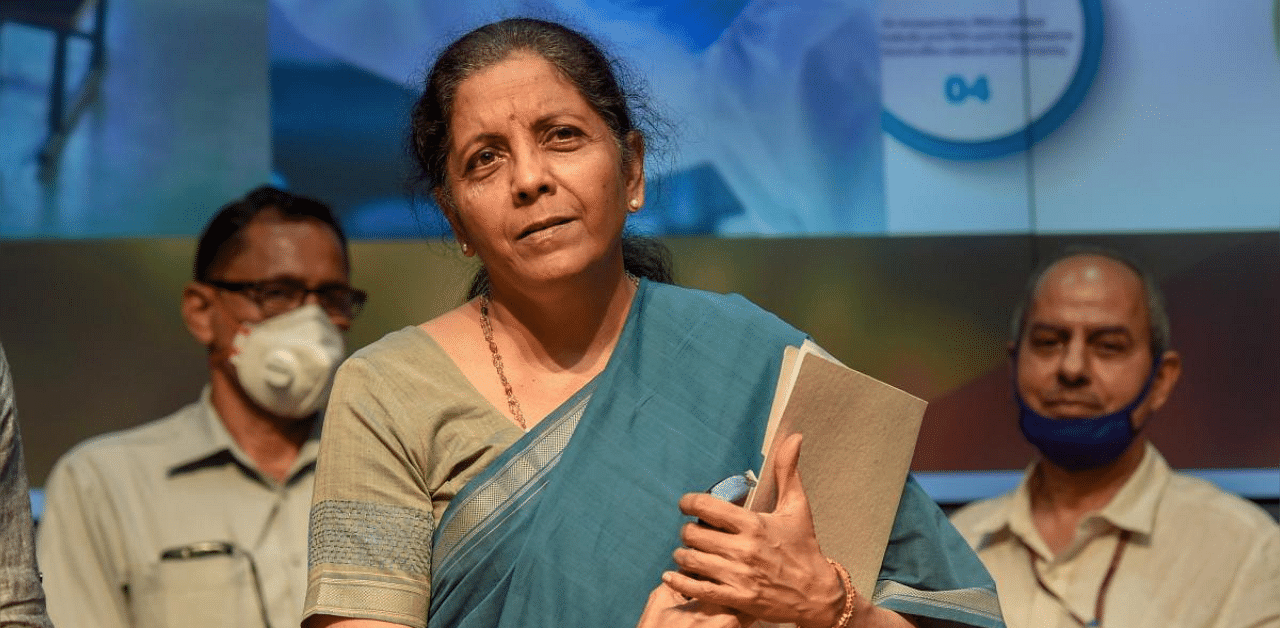
By Haslinda Amin, Rishaad Salamat and Vrishti Beniwal
Finance Minister Nirmala Sitharaman said she will not let worries about a widening budget deficit stop her from spending more to support an economy that’s entered an unprecedented recession.
The stimulus spending won’t be wound down in a hurry either, she said in an interview with Bloomberg Television on Tuesday. The government and the central bank together have done a good balancing act, she added.
“For the present, I’m not going to allow the fiscal deficit number to worry me because there is a need, and a clear need, for me to spend the money,” Sitharaman said.
Sitharaman, who reviews government expenditure every fortnight, said she will push state firms to accelerate spending. Prime Minister Narendra Modi last month expanded a support package to 15% of the economy to rescue companies and save jobs amid the coronavirus pandemic, adding to global stimulus that has touched $12 trillion.
Economists see the additional spending, along with falling tax revenue, pushing India’s budget gap wider to 8% of gross domestic product in the current financial year, more the double the targeted 3.5%.
The rupee and stocks gained after the minister’s comments, while sovereign bonds were steady. The currency strengthened 0.2% versus the dollar, while the S&P BSE Sensex rose as much as 0.7%, before giving up gains to trade flat as of 12:22 p.m. in Mumbai.
“As regards the coming year, we need to do an assessment,” she said ahead of the next fiscal year’s budget due Feb. 1. “I’m not sure that I can immediately curtail expenditure. It will have to be a careful balance because of the momentum that the economy gains should be sustained.”
India’s economic support package mostly comprises of loan guarantees to businesses, with the actual fiscal cost for the government seen as much less, according to economists including Standard Chartered Plc’s Kanika Pasricha, who sees the headline fiscal impact at around 1.3% of GDP.
India also raised its borrowings target for the year to March to a record 13.1 trillion rupees ($177 billion). S&P Global Ratings and Fitch Ratings previously said their assessment of India’s sovereign score hasn’t been altered by the economy’s additional borrowings.
“The government spending is important to bring the economy on track and globally, countries are following this route,” said Deven Choksey, a strategist at KRChoksey Investment Managers Pvt. in Mumbai. “The markets are likely to remain flush with liquidity and we can worry about the deficit later.”
Countries that committed to stimulus spending as high as 20% of their GDP are now resorting to additional taxation, Sitharaman said, adding that the Modi government’s measures were working well for India, and helping fuel a recovery in the economy that’s currently in a recession.
India’s GDP shrank a less-than-expected 7.5% in the three months ended September, a marked improvement from the June quarter’s record 24% contraction. A slew of high-frequency indicators also suggest a gradual recovery in activity across services and manufacturing sectors -- the key engines of the economy.
That prompted the Reserve Bank of India this month to revise its annual outlook for the economy to a milder 7.5% contraction compared with a 9.5% drop seen in October. The RBI, for its part, has cut interest rates by 115 basis points so far this year, besides injecting billions of dollars in liquidity and ensuring financial stability.
Both the International Monetary Fund and the RBI “have very clearly seen good recovery happening,” Sitharaman said. “A sustained good positive recovery is what I see from the beginning of the next fiscal.”
Sitharaman also lauded the RBI for bailing out Lakshmi Vilas Bank Ltd. by allowing it to be taken over by a local unit of Singapore’s DBS Group Holdings Ltd., citing it as an example of an economy opening up.